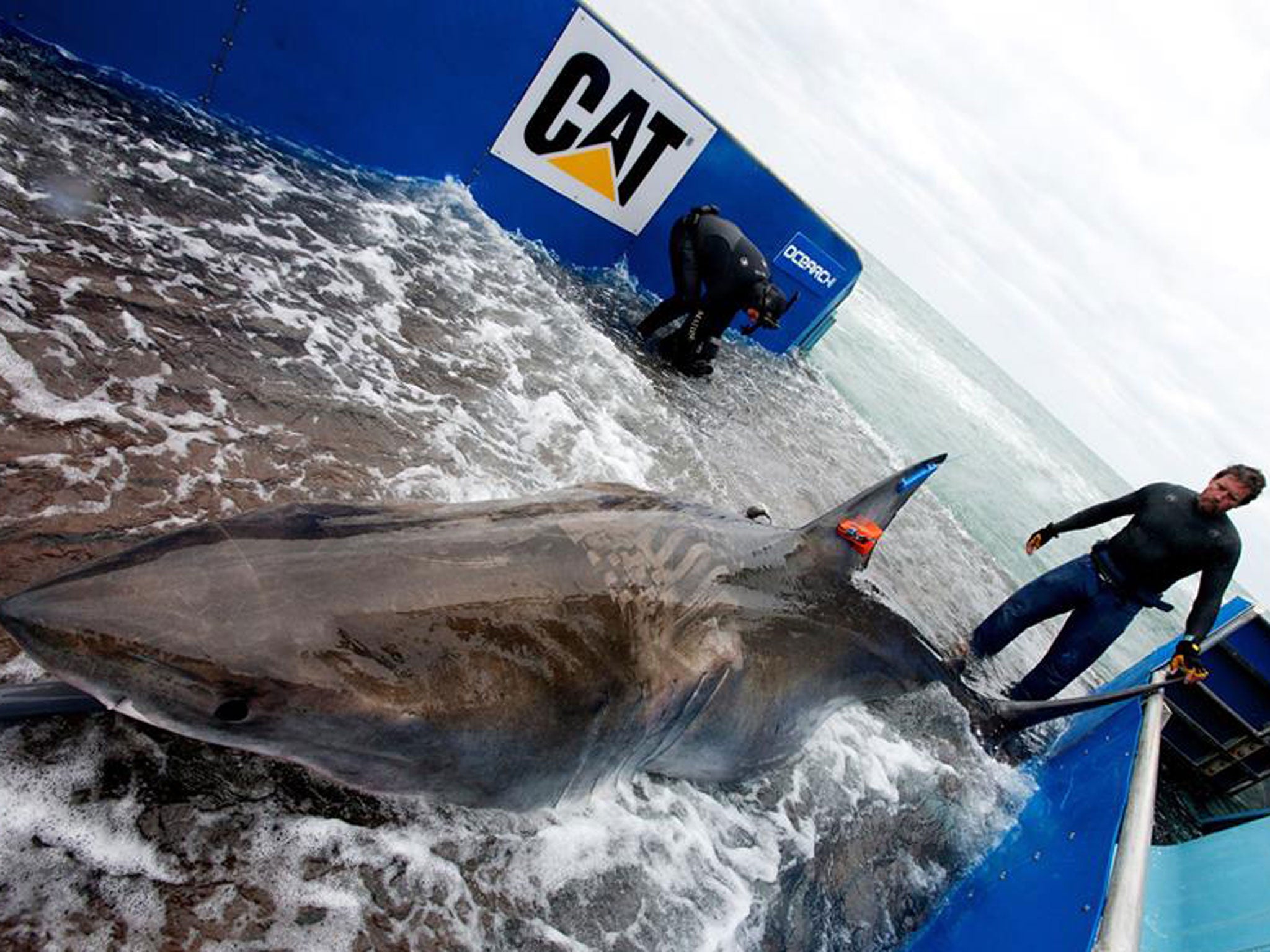Transatlantic great white shark Lydia 'may be pregnant' says expedition leader
The Ocearch project has been tracking Lydia as she crossed the Atlantic boundary between east and west

The first great white shark ever observed crossing the Atlantic may be pregnant, according to the head of the expedition currently tracking her.
The 14ft female has been fitted with a satellite tag by the Ocearch project and was followed as she completed her transatlantic crossing.
At the weekend Lydia, who had a tracking device attached to her in Jacksonville, crossed the mid-Atlantic ridge. She has travelled 19,500 miles in total and is now about 3,000 miles from her initial starting point, after turning back towards the UK.
Lydia’s journey across the Atlantic is the first time scientists have been able to follow a great white undertaking such a migration path.
Expedition leader Chris Fischer has told the BBC he believes she may be pregnant and heading towards birthing grounds in the Mediterranean - although no-one is sure where or how far she will travel.
"If I had to guess, I would guess that Lydia is pregnant, and that she has been out in the open ocean gestating her babies and that this spring she will lead us to where those baby white sharks are born - the nursery," he said.
"If you forced me to guess where that was, I'd say it was over in the Mediterranean, near Turkey, but that's longball I'm playing. She could turn around right now and head back to Florida."
It is possible that Lydia, who is currently 1,000 miles away from the western coasts of Ireland and Britain could reach the UK, he added.
However, some scientists working on his team do not support his theory, because preliminary analysis of blood samples taken from Lydia when she was being tagged in Jacksonville suggested she was not pregnant at that time.
But Mr Fischer argued that sperm from a male whale comes “in a packet with a shell on it”, allowing them to carry it around for a while "until a special organ inside them breaks down the shell and they get pregnant”.
The team of scientists have been operating a custom-built hydraulic platform from their research vessel to safely lift mature sharks so that researchers can tag and observe them, the BBC has reported.
When Lydia was tagged, Mr Fischer said she was “super healthy” and had been sexually mature for a short period of time.
"She looked like she had a bright future ahead of her - but I never would have dreamed she would lead us over to your neighbourhood” he added.
The project aims to gather "previously unattainable" data on the movement, biology and health of sharks to protect their future and improve public safety and has tagged 150 sharks so far.
Join our commenting forum
Join thought-provoking conversations, follow other Independent readers and see their replies
Comments
Bookmark popover
Removed from bookmarks